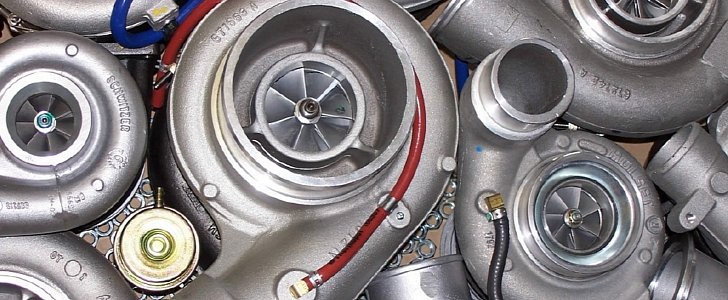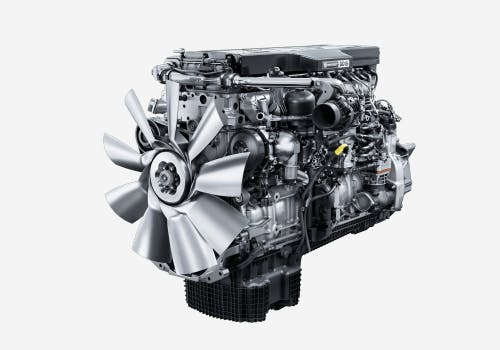Premier Distributors: Engines For Africa Offers Dependable Power
Wiki Article
A Total Overview to Picking the Right Engine for Your Task
Picking the proper engine for your project is a vital choice that can significantly impact its total success. It is critical to carefully specify your task needs, assess performance demands, and take into consideration user-friendliness alongside other crucial factors. Furthermore, recognizing the area support available and scrutinizing expense ramifications can better improve your choice. Each of these elements plays a critical function in ensuring that your selected engine not only meets immediate objectives but also aligns with long-lasting goals. As we check out these considerations, you may discover that the nuances of each facet expose greater than originally prepared for.Specify Your Job Requirements
Defining your project requires is an important action in picking the suitable engine for effective application. A comprehensive understanding of your task's goals will certainly assist you in identifying the attributes and abilities called for from an engine. Begin by detailing the scope of your task, including the preferred functionality, target market, and the particular end results you aim to achieve.
Next, think about the technical requirements that align with your project objectives. This includes reviewing the compatibility of the engine with existing systems, in addition to the shows languages and frameworks that will be made use of. Additionally, examine the degree of scalability required to fit future development or changes popular.
Budget constraints likewise play a crucial duty in defining your job requires. Develop a clear economic framework to direct your decision-making procedure, ensuring that the engine selected fits within your budget plan while supplying the necessary functionality.
Evaluate Performance Demands

Following, take into consideration the scalability of the engine. Analyze whether it can handle enhanced workloads as your project grows. Engines that support horizontal scaling are typically more effective for bigger applications. Furthermore, examine the engine's efficiency under different conditions, such as peak usage scenarios, to ensure it meets your reliability requirements.
Consider Convenience of Use
While technological specifications are important, the simplicity of use of an engine can substantially impact the advancement process and total job success. An user-friendly user interface, clear paperwork, and structured process can dramatically reduce the knowing contour for developers, allowing them to focus on imagination and analytical instead of facing facility tools.When evaluating an engine's simplicity of usage, consider the onboarding experience. A well-structured intro, complete with tutorials and example projects, can assist in a smoother shift for new users. Furthermore, the quality and comprehensiveness of the engine's documentation play a vital duty; detailed guides and API references can encourage developers to fix and apply attributes efficiently.
An additional facet to consider is the engine's personalization abilities. An engine that permits for very easy adjustments can be much more straightforward, as designers can tailor it to fit their specific requirements without substantial inconvenience. Examine the workflow combination with platforms and tools you currently make use of. A cohesive ecological community can enhance performance and minimize friction throughout the advancement process. Inevitably, choosing an engine that focuses on ease of use can bring about an extra efficient and pleasurable growth experience.
Assess Neighborhood and Assistance
The toughness of an engine's neighborhood and support network can considerably influence a developer's experience and success. A lively area frequently suggests a wide range of shared understanding, sources, and fixing assistance that can improve your job's growth process. When examining an engine, consider the size and activity degree of its neighborhood. Larger areas commonly use a lot more forums, tutorials, and third-party plugins, making it possible for designers to find remedies a lot more efficiently.Additionally, assess the schedule of official assistance channels. Trusted documents, responsive consumer assistance, and normal updates are crucial for attending to technical concerns and keeping your task on track. Engines For Africa. Energetic areas likewise cultivate collaboration, supplying possibilities for networking and feedback, which can be very useful, particularly for tiny groups or independent developers
Furthermore, explore the presence of community-run events, such as hackathons or meetups. These celebrations can enrich your understanding of the engine while connecting you with potential collaborators and knowledgeable individuals. In recap, a durable area and support system not only improve advancement however additionally develop a setting helpful to learning and innovation, eventually improving the probability of your job's success.
Contrast Expense and Licensing Choices
Budget plan factors to consider play a crucial role in selecting the right engine for your project, as the cost and licensing options can significantly impact both temporary costs and long-lasting viability. Engines For Africa. Different engines provide differing pricing frameworks, which can include one-time acquisition fees, subscription models, or revenue-sharing agreements based upon your project's earnings
Licensing options additionally differ dramatically. Some engines are open-source, using versatility and community-driven support, while others may call for proprietary licenses that restrict use and distribution. Understanding the implications of each licensing version is crucial, as it impacts ownership civil liberties, future scalability, and prospective legal commitments.
Final Thought
To conclude, selecting the proper engine for a job necessitates a comprehensive evaluation of specified job needs, efficiency requirements, convenience of use, area support, and cost factors to consider. By methodically addressing these crucial elements, decision-makers can ensure placement with both present and future job needs. A well-informed selection ultimately boosts the possibility of task success, enabling reliable resource allowance and optimizing potential results within the defined budgetary restrictions.Selecting the suitable engine for your task is a vital choice that can significantly affect its total success.Defining your job needs is an essential step in choosing the appropriate engine for successful execution. An extensive understanding of your job's purposes will certainly assist you in recognizing the capacities and functions called for from an engine.Once you have a clear understanding of your job needs, the following action is Get the facts to review the efficiency requirements of the engine.In conclusion, choosing the proper engine for a job demands a comprehensive analysis of defined project requirements, performance demands, simplicity of use, neighborhood assistance, and expense factors to consider.
Report this wiki page